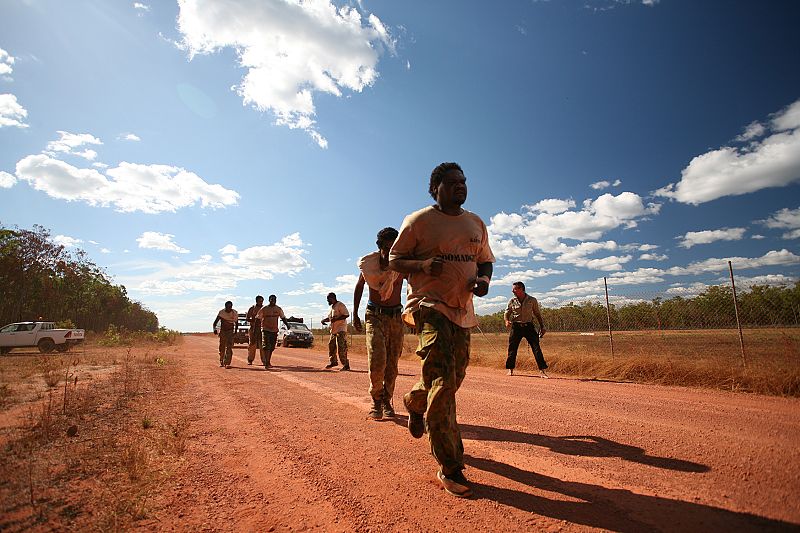While Australian governments commission inquiries into the over-incarceration of Indigenous people and then ignore their recommendations, the Kapani Warrior Program is demonstrating what it takes to make a real difference.
IN HIS ADDRESS at the Swearing-in Ceremony as the Governor-General of Australia, Mr David Hurley highlighted his dedication to support the people and organisations “assisting our veterans, our rural communities under stress... and our Indigenous brothers and sisters”. He backed up this sentiment by making Aurukun their first official visit as Australia’s Head of State. He wanted to see the Inaugural Kapani Warrior Cup.
The Kapani Warrior Program aims to address the antecedents to incarceration in indigenous communities, in particular aggression, alcohol abuse and trauma. Kapani works directly with male perpetrators of domestic violence, individuals at risk of perpetrating domestic violence and those with a history of violence and aggression.
Developed by Dr Tim White, a veteran who served in Somalia, the program sees young Indigenous men coached by veterans through rigorous training camps. These young men learn to manage their own emotional de-escalation and forge incredible bonds with their fellow participants and their Warrior mentors.
What first appears to be a strange pairing of demographics, Dr White reiterates that when it comes to suffering from trauma, veterans can only be compared by Aboriginal men, who also experience some of the worst rates of mental health issues, drug and alcohol abuse, incarceration and suicide.
The four teams that competed in the Kapani Warrior Cup each come from indigenous communities with high rates of criminal and public nuisance offences. In Australia, such crime and over-incarceration rates are a significant human rights concern.
Although comprising only 2.8% of Australia’s total population (as per 2016 census), Indigenous people represent 28% of the adult prison population. Indigenous children make up 7% of the youth population but a staggering 54% of those in youth detention. The Kapani Warrior Program caters for men between 18 and 30.
These unfathomable statistics were the focus of the Australia Law Reform Commission’s (ALRC) report, delivered to the Federal Government in December 2017. The ALRC also provided practical recommendations, for example to invest resources from the criminal justice system into programs like Aurukun, that help keep people out of the criminal justice system.
The Federal Government is yet to respond to the ALRC’s report.
The Kapani Warrior Program embodies the type of action recommended by the ALRC and boasts remarkable statistics since its conception only a few years ago.
Over the past two years, 157 participants have entered military service, 87% of which have graduated recruitment training. In this same period, there has been an astounding 75% reduction in public nuisance offences across various communities.
The Kapani Warrior Program far exceeds any justice reinvestment programs trialed to date.
Kapani’s motto is “Deeds, Not Words”, a lesson our State and Federal representatives must learn if we are ever to truly address the significant human rights concerns of Indigenous Australians.
NEW ONLINE EXCLUSIVE: ‘Your job as warriors...is to be a protector of your community... Not a no-good fella starting fights down on Kang Kang Road.’ @CAugustElliott's report on the Kapani Warrior Program is online now. Read the whole story here: https://t.co/A3jofIzHvD pic.twitter.com/9MHWfvFQzP
— Griffith Review (@GriffithReview) June 14, 2018
Zac Galbally is a recently admitted lawyer from Melbourne. A passionate advocate for many social justice matters, he has worked across a range of legal areas, with a particular focus on Indigenous-related matters and assisting refugees and asylum seekers.
 This work is licensed under a Creative Commons Attribution-NonCommercial-NoDerivs 3.0 Australia License
This work is licensed under a Creative Commons Attribution-NonCommercial-NoDerivs 3.0 Australia License
Support independent journalism Subscribe to IA.










